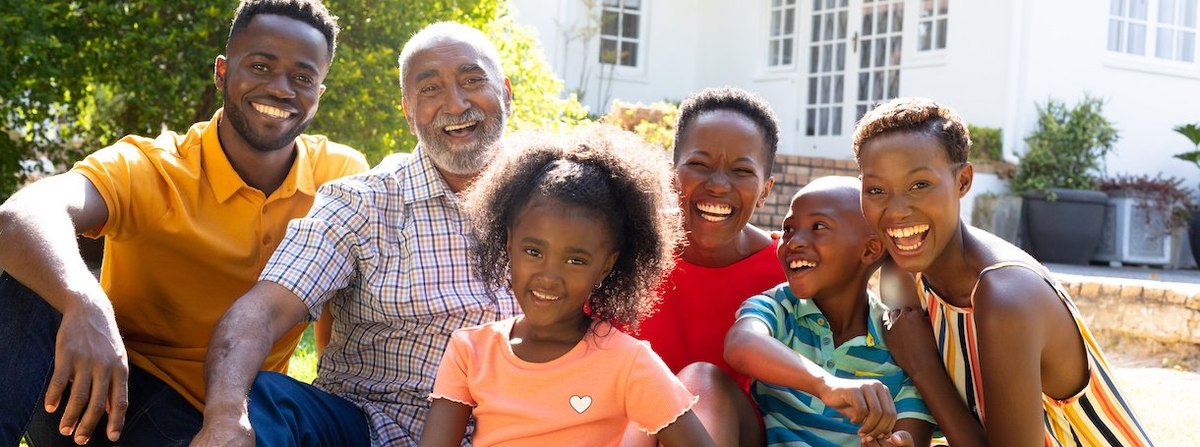Having children is a deeply personal decision, but that doesn’t mean that potential parents aren’t feeling any pressure from their parents, their partner, or society.
A new YouGov survey asked American adults about how many children and grandchildren they would like to have, and whether pressure from their own parents has played a role in their decision-making. The survey finds that pressure from a partner may play a major role in the decision to have children, but pressure from hopeful grandparents is less of a factor. The survey also asked grandparents about whether it’s easier or more enjoyable to be a grandparent rather than a parent. Grandparenting wins on both fronts.
Among people who are not parents, 51% don’t hope or plan to be: Their ideal number of children is zero. Among non-parents, 7% hope to have one child, 21% hope to have two, 5% want three children, and 7% want four or more.
Among people who are already parents, 16% say they’d ideally like just one child. About twice as many (32%) would like a total of two children, 22% want three children, and 19% want four or more kids total. And 11% of parents say their ideal number of total children is zero.
Among parents, most aren't longing for more children. Among people who are parents to one child, 57% say one is their ideal total number of children and 20% say they’d like to have two total. Among people who are parents to two children, 71% say two is their ideal number and 7% would prefer fewer. Among parents of three, 72% say three is their ideal number and 18% would prefer fewer. Among parents of four or more, 76% prefer at least four while 23% say they would rather have fewer children.
Some parents may have children in part due to pressure from their partner, their family members, friends, or society.
Among parents, 25% say pressure from their partner played a major role in their decision to have children; 16% say it played a minor role. Men (33%) are more likely than women (19%) to say their partner’s pressure played a major role.
Few say that pressure from their parents (9%), their partner’s parents (6%), society (6%), their friends who are parents (4%), friends who are not parents (3%), or colleagues (3%) played a major role in their decision to have children. Majorities say each played no role, including large majorities for all but partners. About half of parents (49%) say none of these, nor partners, played any role.
Though many parents may joke to their adult children about wanting grandchildren, most parents say they were not pressured by their own parents or their partner’s parents to have kids based on desires for grandchildren.
Among parents, 12% say their mother pressured them for kids because she wanted grandchildren and 7% say their father did. Similar percentages say the mother of their partner (11%) and father of their partner (7%) pressured them into having children because they wanted grandchildren.
Parents between the ages of 30 and 44 are more likely to have felt pressured than are their older and younger counterparts. Among 30- to 44-year-olds, 26% of parents say they were pressured by their mother to have children and 27% say they were pressured by their partner’s mother.
Do people who are not parents face any pressure from their own parents to have kids? Most do not, although 21% say their mother has pressured them to have children due to her desire for grandchildren. Few say their father (8%), partner’s mother (9%), or partner’s father (3%) have pressured them to have children.
About half of Americans (53%) think it is a bad thing for parents who desire grandchildren to pressure their children to have children of their own. Similar proportions of grandparents (53%) and non-grandparents (54%) hold this view. One in 10 Americans (10%) think it’s a good thing for hopeful grandparents to put the pressure on, while 31% say it’s neither good nor bad.
Two-thirds of grandparents say that being a grandparent is easier than being a parent. Few (11%) think being a parent is easier and 16% think the two roles are equally easy. When it comes to enjoyment, 20% of grandparents say they have enjoyed parenting more but 25% have enjoyed being a grandparent more. About half (51%) say they find both equally enjoyable.
Among the 31% of Americans who are currently grandparents, most (60%) say they want four or more grandchildren. Around one in six (17%) say their ideal number of grandchildren is four, 10% would prefer five grandkids, 11% would prefer six grandchildren, and 23% want seven or more.
— Taylor Orth and Carl Bialik contributed to this article
Related:
- Across generations: Americans describe close relationships with their grandparents and grandchildren
- What do Americans think about different parenting styles, and which style did they grow up with?
- How many Americans grew up with parental rules, and how many broke those rules?
- How often do Americans think parents and non-parents regret their choices?
See the results for this YouGov poll
Methodology: The YouGov poll was conducted online on September 5 - 10, 2023 among 1,000 U.S. adult citizens. Respondents were selected from YouGov’s opt-in panel using sample matching. A random sample (stratified by gender, age, race, education, geographic region, and voter registration) was selected from the 2019 American Community Survey. The sample was weighted according to gender, age, race, education, 2020 election turnout and presidential vote, baseline party identification, and current voter registration status. Demographic weighting targets come from the 2019 American Community Survey. Baseline party identification is the respondent’s most recent answer given prior to March 15, 2022, and is weighted to the estimated distribution at that time (33% Democratic, 28% Republican). The margin of error for the overall sample is approximately 4%.
Image: Adobe Stock (WavebreakMediaMicro)













